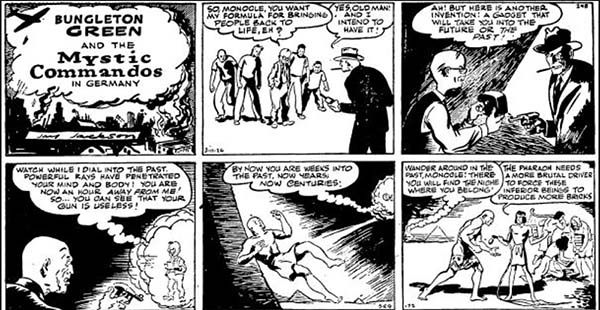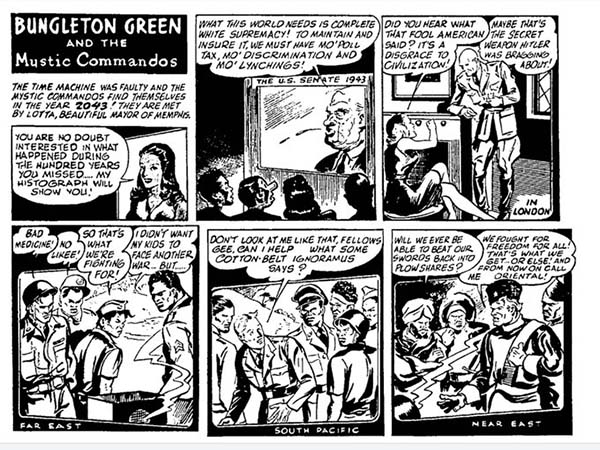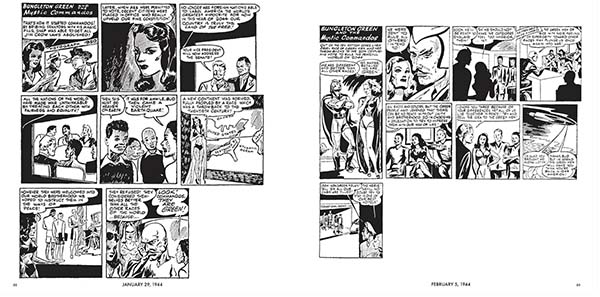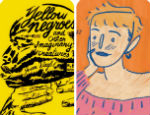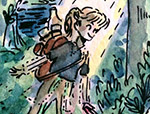What continues to delight about the publishing catalogue of New York Review Comics is the way in which it embraces every era of comics, from republishing William Gropper’s 1930 proto-graphic novel Alay-Oop to showcasing the contemporary experimentalism of Joe Kessler’s The Gull Yettin. It’s those forays into comics history, though, that are arguably the most important part of its publishing ethos, bringing forgotten gems and neglected pivotal sequential art to new audiences. Case in point today – Jay Jackson’s Bungleton Green and the Mystic Commandos, a landmark moment in Black comics, yet one that doesn’t even have its own Wikipedia page.
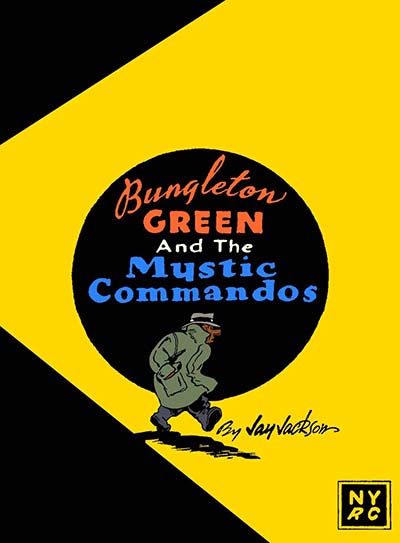
A fascinating introductory essay by Jeet Heer gives context to the work collected here. Bungleton Green had originally been a long-running gag strip featured in African-American newspaper the Chicago Defender; the titular character being a Black counterpart to a long line of ill-fated comic strip losers. In 1942, when Jackson took over the feature he completely re-imagined it. Bringing in a group of youngsters – the Mystic Commandos – nominally as a supporting cast (though they quickly become the main focus), Jackson then shifted Bungleton Green to a science fantasy series replete with social commentary on the war and Black lived experience at the time. Bungleton himself would later go on to be adapted into a more super-heroic figure.
Bungleton and his sidekicks (with suitably quirky monikers like Knifey, Bud Happyhollow, Pig Pulum and so on) quickly find themselves caught up in Nazi plots that involve time-travel, science-fiction elements, and otherworldly entities. Black history plays a huge part in early storylines. Revolutionary war soldier Prince Whipple, for example, returns from beyond to aid the boys on a number of occasions, while the gang’s password is based on key Black figures from the past who get their own accompanying illustrated bios (also collected here).
It takes Jackson a little while to find a consistent style, with initial outings feeling a little more freeform and slapstick in conception. But they later settle into a more pronounced rhythm with notable storylines seeing a villain known as the Monocle stirring up hatred against Black workers in the war industries, and the gang kidnapped to 1778 by a Nazi scientist and his wife where they become slaves. In the most memorable and longest-running story collected here the Mystic Commandos travel to the future of 2043 where racism has been eliminated. That is apart from the new land of Vert where the Green Men who live there persecute whites or, as they call them, “chalkies”. It’s perhaps not the subtlest of subversive allegories but it is an extremely effective one.
Where NYRC’s Bungleton Green and the Mystic Commandos misses a trick is that so much context is lost as to how radical Jackson’s retooling is by the omission of even a couple of sample strips of what had come before. Still, this is an essential archive of socially important material. Some of Jackson’s satire is understandably heavy-handed but simultaneously it can also be incredibly articulate and cutting. His visuals aren’t necessarily sophisticated but they have an enthusiastic energy that carries the reader along. Ultimately, though, it’s its historical context that makes this such an invaluable volume; one that ably represents Jackson’s message that fighting racism at home was as important as fighting fascism abroad.
Jay Jackson (W/A) • New York Review Comics, $24.95
Buy online from Gosh! Comics here
Check out our Broken Frontier Resource List on Black History and Black Lives here
Review by Andy Oliver





